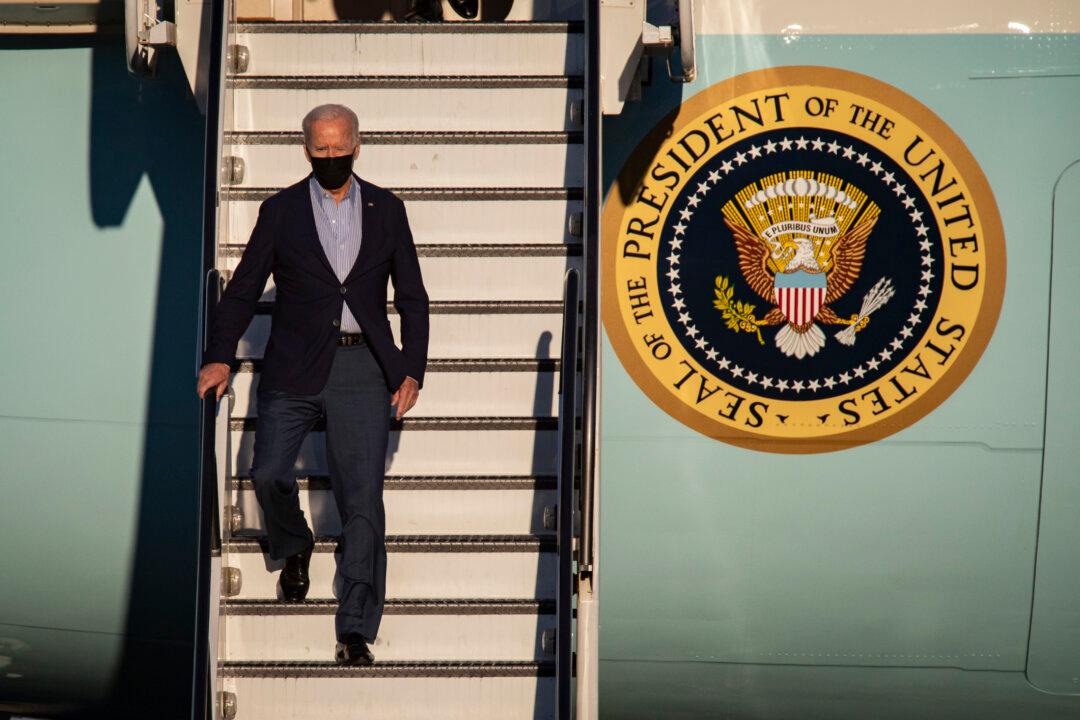As President Joe Biden tries to alleviate supply shortages and disruptions before Christmas, experts said that the process will take far longer.
Earlier this week, the White House released a statement saying it received confirmation from UPS, FedEx, Walmart, and other companies, as well as the Port of Los Angeles, to increase the number of shifts to deal with a backlog of container ships, labor shortages, and warehousing issues.





